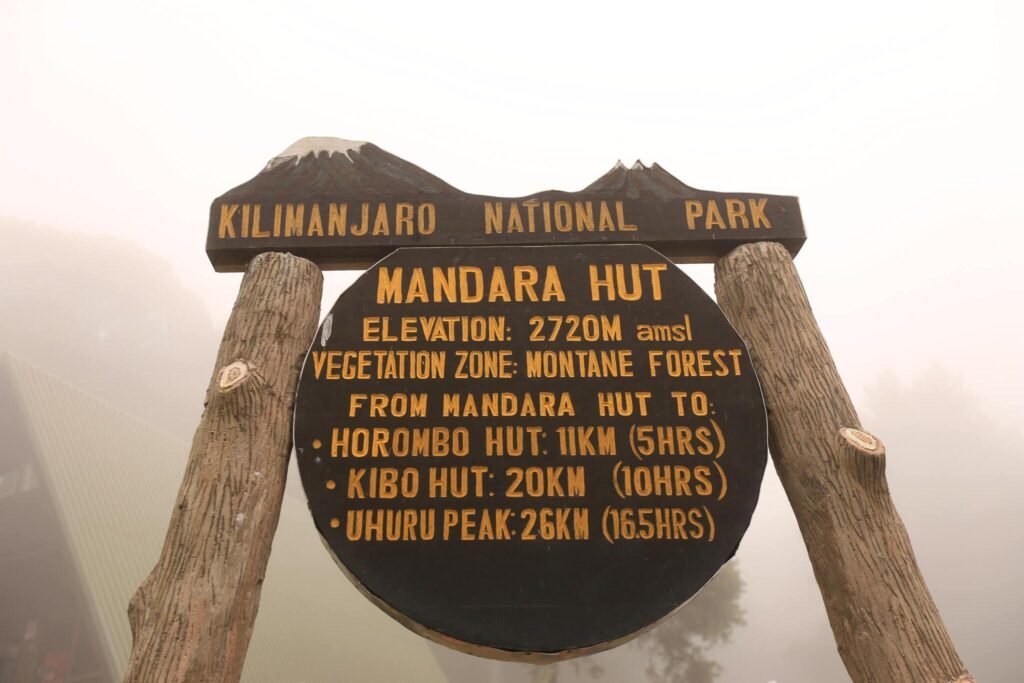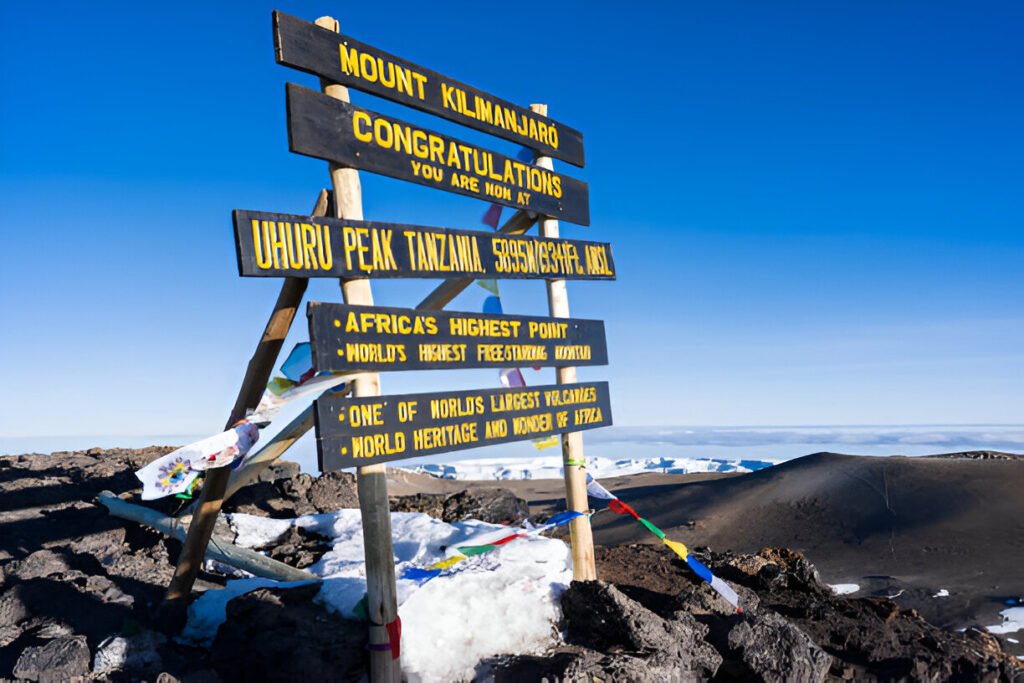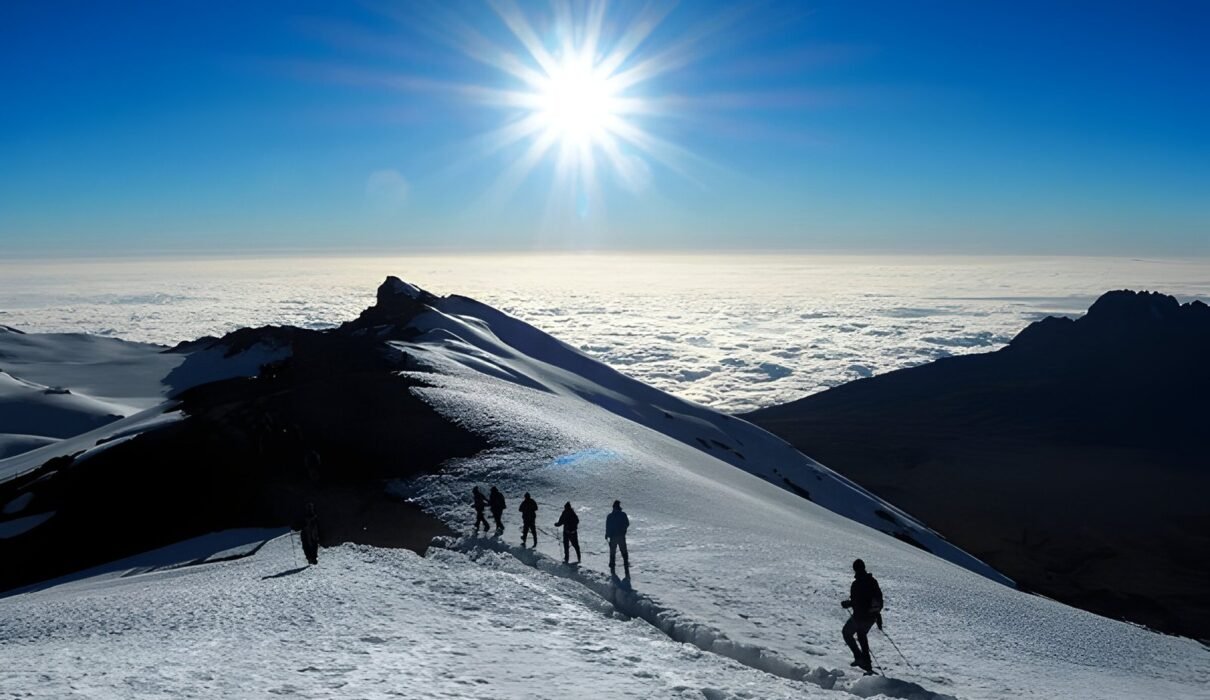Medical Check-Up Before Climbing Kilimanjaro Trekkers is a physically demanding adventure that requires adequate preparation, both mentally and physically. One of the most crucial steps before embarking on this journey is undergoing a comprehensive medical check-up. This check-up ensures that you are fit for the high-altitude trek and able to handle the challenges posed by extreme altitude and varying temperatures. This guide will explore the key medical assessments needed, health risks associated with high-altitude trekking, and tips to prepare your body for the climb.

1. Why a Medical Check-Up is Essential Before Climbing Kilimanjaro
Before heading out on the Kilimanjaro trek, your body needs to be assessed to ensure it can withstand the physical challenges and environmental conditions. Climbing Kilimanjaro takes you to heights of almost 6,000 meters (19,341 feet), where oxygen levels are low, and temperatures can drop dramatically. A medical check-up helps to identify any underlying health conditions that could pose risks at high altitudes or during strenuous activity. Additionally, it ensures that you are in peak physical condition to avoid serious health complications during the trek.
2. Recommended Medical Tests Before the Trek, Medical Check-Up Before Climbing Kilimanjaro Trekkers
To ensure you are physically ready to climb Kilimanjaro, several tests and health checks are recommended:
- Cardiovascular health assessment: A test to ensure your heart is strong enough to handle the stress of high-altitude trekking. An electrocardiogram (ECG) is often recommended to assess heart function, especially for older climbers or those with a history of heart conditions.
- Lung function test: Given the reduced oxygen at high altitudes, it’s crucial to ensure your lungs are healthy. A spirometry test may be conducted to measure how well your lungs are working.
- Blood pressure check: Trekking at high altitudes can cause blood pressure to fluctuate. It’s important to have a baseline measurement and ensure that your blood pressure is within normal limits before starting the climb.
- Complete blood count (CBC): This test measures the levels of red blood cells, white blood cells, and platelets. Adequate levels of red blood cells are essential for oxygen transport, which becomes crucial in low-oxygen environments like Kilimanjaro’s summit.
- Physical fitness assessment: Many doctors recommend an overall physical fitness test to evaluate your stamina, flexibility, and endurance. This is key for ensuring that your body can handle prolonged physical exertion.
3. Pre-Existing Conditions: Special Considerations, Medical Check-Up Before Climbing Kilimanjaro Trekkers
If you have pre-existing health conditions, it’s even more critical to undergo a detailed medical examination. Conditions such as asthma, diabetes, heart disease, and high blood pressure require careful management during the trek. For individuals with respiratory issues, carrying additional inhalers or oxygen may be advised. Diabetic climbers should plan for blood sugar management under challenging conditions, while those with heart conditions should follow strict guidelines for exertion levels.
Always consult your physician and ensure you discuss any medications you will need to take during the trek. Some medications may need to be adjusted to account for altitude or the physical demands of climbing.
4. High-Altitude Sickness and Its Symptoms, Medical Check-Up Before Climbing Kilimanjaro Trekkers
One of the greatest health risks when climbing Kilimanjaro is Acute Mountain Sickness (AMS). This condition occurs when the body fails to acclimatize to high altitudes and the reduced oxygen levels in the air. Symptoms of AMS include:
- Headache
- Nausea and vomiting
- Dizziness
- Fatigue
- Shortness of breath
In more severe cases, AMS can develop into High Altitude Cerebral Edema (HACE) or High Altitude Pulmonary Edema (HAPE), both of which are life-threatening and require immediate descent.
Your medical check-up should include a discussion about AMS, how to recognize its symptoms, and how to prevent it. Doctors may recommend medications such as Diamox (Acetazolamide) to help with acclimatization and reduce the likelihood of developing AMS.

5. Vaccinations and Immunizations, Medical Check-Up Before Climbing Kilimanjaro Trekkers
Before heading to Kilimanjaro, it’s important to be up to date on your vaccinations. Tanzania, where Mount Kilimanjaro is located, has several health risks that can be mitigated through vaccinations. Recommended vaccinations include:
- Yellow fever (if you’re traveling from a country where yellow fever is prevalent)
- Hepatitis A and B
- Typhoid
- Tetanus
Additionally, it’s important to take precautions against malaria, which is prevalent in the lower elevations surrounding Kilimanjaro. While malaria is not a threat at the high altitudes of Kilimanjaro, you may still need anti-malarial medication if you’re spending time in lowland areas before or after your trek.
6. Mental Health Considerations, Medical Check-Up Before Climbing Kilimanjaro Trekkers
Trekking Kilimanjaro is not just a physical challenge but also a mental one. The isolation, physical exhaustion, and unpredictable weather conditions can lead to feelings of anxiety or depression. During your medical check-up, it’s important to discuss your mental health and develop coping strategies. Techniques like mindfulness, breathing exercises, and staying hydrated can help alleviate the mental strain of high-altitude trekking.
7. Training and Physical Preparation for the Climb, Medical Check-Up Before Climbing Kilimanjaro Trekkers
While the medical check-up is crucial, preparing your body for the climb is equally important. Kilimanjaro’s climb involves several days of continuous walking, with some days lasting 6-8 hours. To build the necessary strength and endurance, a training plan should be followed that includes:
- Cardio exercises: Activities like running, cycling, and swimming can improve your cardiovascular endurance and lung capacity, which are essential for handling the reduced oxygen levels at high altitudes.
- Strength training: Focus on building leg strength, as this will be the most crucial part of your body for trekking. Squats, lunges, and hiking on uneven terrain are excellent exercises.
- Hiking practice: Spend time hiking in your local area to simulate the type of terrain and exertion you’ll experience on Kilimanjaro. Practice hiking with a backpack to get used to the weight you’ll be carrying.
8. Hydration and Nutrition: Key Factors
Proper hydration is crucial when trekking at high altitudes, as dehydration can exacerbate the symptoms of AMS. Ensure you stay well-hydrated before and during the climb. Your doctor can also recommend electrolyte supplements to prevent dehydration.
As for nutrition, consult a nutritionist or dietitian to develop a meal plan that supports endurance and strength. Your diet should be rich in carbohydrates, proteins, and fats to provide sustained energy. Many trekkers also carry energy gels or bars for quick fuel during the climb.
9. Medications to Bring, Medical Check-Up Before Climbing Kilimanjaro Trekkers
During your medical check-up, you should also discuss the medications you will need for the trek. Apart from altitude sickness medication like Diamox, other essential medications include:
- Painkillers: For headaches or muscle aches.
- Anti-inflammatory medications: To relieve joint pain or inflammation.
- Anti-nausea medication: In case of altitude sickness or gastrointestinal issues.
Your doctor will help you compile a personalized list of medications based on your health status.
10. Final Thoughts on Medical Readiness for Kilimanjaro, Medical Check-Up Before Climbing Kilimanjaro Trekkers
Climbing Mount Kilimanjaro is a rewarding but challenging adventure that requires serious preparation. Undergoing a medical check-up is an essential step to ensure your safety and well-being throughout the journey. By assessing your cardiovascular health, lung function, and overall fitness, you’ll be better equipped to handle the high-altitude trek. Additionally, understanding the symptoms of AMS, staying hydrated, and maintaining proper nutrition will help maximize your chances of successfully summiting this iconic peak.
Medical Check-Up Before Climbing Kilimanjaro Trekkers, Before you embark on your Kilimanjaro adventure, ensure that you are medically and physically prepared to conquer one of the world’s greatest trekking challenges. Always consult with a healthcare professional before starting your adventure.

